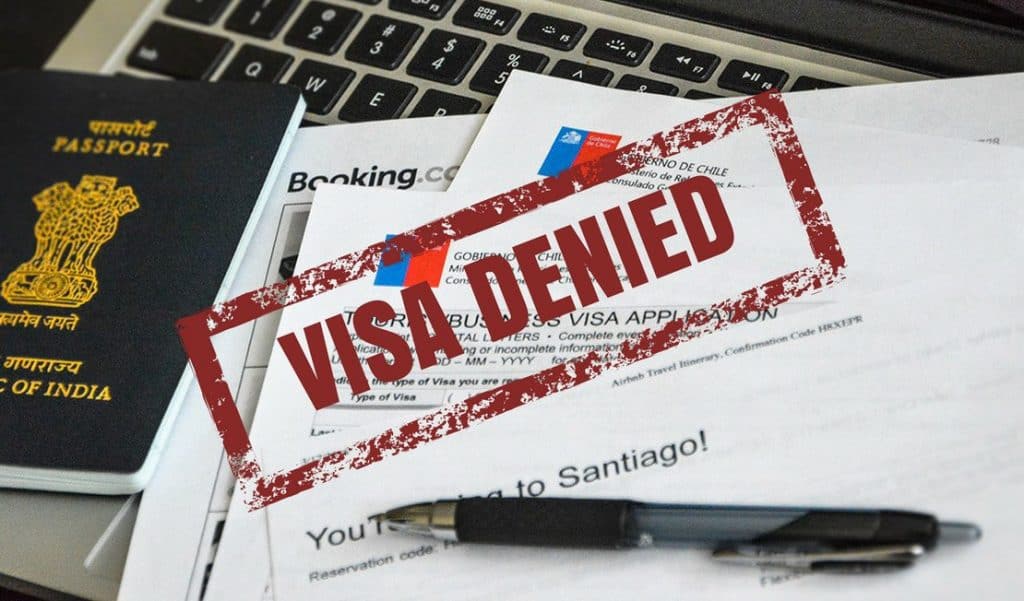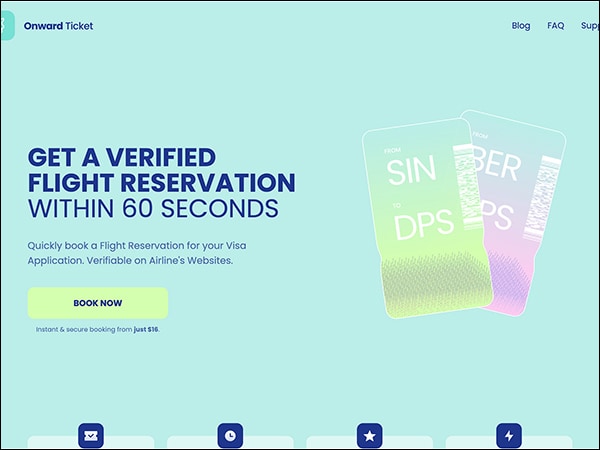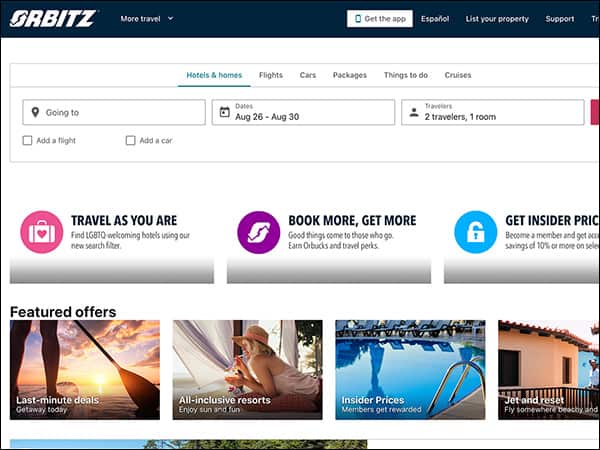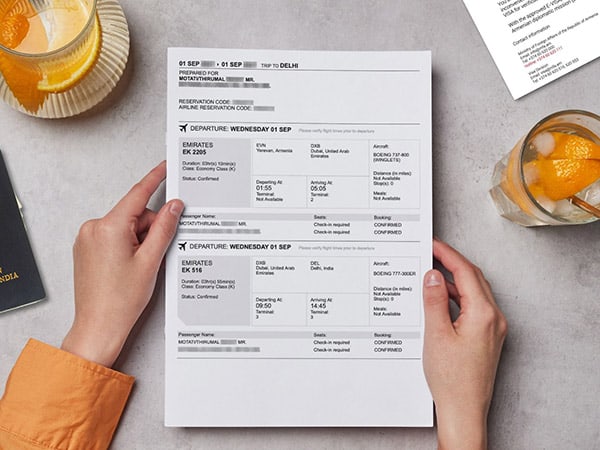
The success rate of visa approval depends on many factors. It also depends on the country you are applying for and what proof of documentation you have. But sometimes, even simple mistakes can get your visa denied.
I have applied for a lot of visas in the last 7 years. I have made a ton of mistakes myself. But over time I have learned to avoid these mistakes. These days, none of my visas are rejected.
Being smart and avoiding these mistakes will spare you time, money and visa denials. So, without further due, let’s look at these 11 mistakes that can get your visa denied. And the ways to avoid them.

***
01. Not following the visa rules strictly
The visa rules are there for a reason. You are supposed to follow them strictly. If not, you are taking chances.
Consulates reject applications that do not follow the visa rules strictly. Even if they accept, they may ask for additional documentation or eventually deny the visa.
Example: If a visa is usually granted for 30 days, don’t try to show a 45-day itinerary and ask for a 45-day visa.
Personal Experience
Thailand Visa on Arrival is only for 15 days for India passport holders. I have heard stories that some were given a 30 day Visa on Arrival on request. So, I decided to take my chances and ask for a 30-day visa. I booked a return ticket in 30 days and hopped on a flight to Thailand.
At the Visa on Arrival in Bangkok, I requested the visa officer for a 30-day Visa. I told the visa officer that I had heard stories that some were given a 30-day Visa on Arrival. The visa officer told me that the visa rules are strict and they cannot accommodate such requests. He asked me to book a new flight ticket within 15 days of arrival and come back in line.
I had to pay a premium to use the internet at the airport and book a new ticket. This not only wasted my time and money but it was an unnecessary risk. Lesson learned.
Also Read: How to travel 50 countries VISA-FREE with US visa in 2023
—
02. Showing return/onward travel by bus/train/boat
Never show your proof of return/onward travel by bus/train/boat. Always show that you will be in and out of the country by AIR.
Visa officers cannot really verify bus/train/boat tickets but they can verify flight tickets if they need to. A flight ticket is a more acceptable form of return/onward travel.
You do not have to actually purchase your return/onward flight tickets for visa applications. You can hold or reserve them. Check out this article for more details on how to get a travel itinerary for your visa application.
For visa EXEMPTION and visa ON ARRIVAL, you must show a confirmed and purchased return/onward flight ticket. You can take advantage of Expedia’s 24-hour cancellation policy if you need to.
—
03. Showing an incomplete itinerary
Consulates would like to see a complete itinerary. They would like to see the itinerary beginning and ending in your home country or country of residence.
A complete itinerary should be something like Home-Destination-Home or Home-Destination1-Destination2-Home. Example: India-Vietnam-Malaysia-India.
If you are going on a multi-country trip, it would be a hassle to hold/reserve the tickets for the entire trip. In that case, just hold/reserve flight tickets from your home country or country of residence for each destination.
Example: If your trip is India-Brazil-Argentina-Chile-India and you are applying for a Chile visa. It would be easier to just show an itinerary India-Chile-India for your Chile visa. You can do the same thing for your Brazil visa by showing an itinerary India-Brazil-India.
Personal Experience
For my Malaysia eVisa, I have uploaded the flight tickets for in and out of Malaysia. My flight tickets were Vietnam-Malaysia-India. The consulate did not approve my visa instead asked me to upload the flight tickets for the complete Itinerary, that is India-Vietnam-Malaysia-India. I had to then upload my complete itinerary. My visa was eventually approved. I could have saved time by uploading the complete itinerary upfront.
Similarly, a friend of mine has a residence permit in Australia. For his Malaysia eVisa, he showed his India-Malaysia-Australia itinerary. He was asked to upload the full itinerary, that is India-Malaysia-Australia-India.
He had to convince the consulate that he would be staying permanently in Australia as he had a residence permit. He could have avoided the unnecessary back-and-forth communication and a trip to the consulate by just uploading a complete itinerary upfront.
—
04. Showing a long itinerary
Always show a short itinerary. An itinerary of 15 days or less is more realistic. Anything longer than 15 days may raise questions such as why you would need that many days.
If you show a long itinerary, you may be asked for additional proof such as a leave approval letter, no objection letter from your employer or proof of additional funds in your bank.
The visas are always issued as per the guidelines. It doesn’t matter how long or short your itinerary is, your visa will be granted for the stipulated amount of days. Showing a short itinerary avoids unnecessary questions and additional documentation.
Example: Say, as per the visa guidelines, a visa is valid for 3 months which grants a 30-day entry. And say, your itinerary for the visa is 15 days. You will still be granted a visa valid for 3 months with a 30-day entry.
Exceptions
There are some countries that issue visas just for the days you have asked for. Make sure to read the visa requirements. Example: Chile tourist visa.
—
05. Mentioning about friends/relatives in the foreign country
Never mention that you know someone in a foreign country. If you do, then you may be asked how you actually know this person. You may also be asked to provide the ID proofs, employment letters or even bank statements of the person you know.
Consulates would like to make sure that you don’t have any contacts in their country that are involved in suspicious or illegal activities.
If asked, just say that you don’t know anyone in that country. You are going there as a tourist to see and explore the country.
Personal Experience
A friend of mine was asked if he knew anyone in Brazil while applying for his Brazil visa from India. He casually mentioned that he had a friend there that he met through Couchsurfing. The Visa officer asked him to contact his friend and bring his friend’s ID proof, etc. Even after providing the additional documents, his visa was eventually denied.
Exceptions
When you are using a sponsor for your visa application, you will, of course, mention that you know your sponsor. Example: US tourist visa using a sponsor.
—
06. Mentioning about Couchsurfing, hitchhiking, etc.
Never mention about Couchsurfing, hitchhiking, backpacking, budget travel, etc. They are all red flags. The visa officers may not be familiar with these concepts and might consider that you do not have enough funds to support yourself.
If asked, simply mention that you would like to go to that country for tourism purposes. If you need to show proof of hotel reservations for your visa application, just make a few refundable hotel reservations.
Do not mention Airbnb as well. Visa officers may not be familiar with Airbnb. Airbnb is still in a gray area as not all governments are in favor of it.
FREE eBook: How to travel 56 countries VISA-FREE with a visa from US, Canada, UK, Schengen, Australia, etc.
—
07. Mentioning about volunteering, remote work, digital nomad, etc.
Never mention about volunteering, woofing, workaway, house sitting, remote work, location independent, digital nomad, etc. These are all red flags.
A tourist visa is strictly for tourism purposes. Engaging in any kind of remuneration activity without a proper work visa is considered illegal.
If found during your visa application, you might be subjected to visa denial and blacklisting.
If found at the port of entry (immigration at the airport), you might be subjected to arrest, fine, deportation or even a permanent ban from entering the country again.
Volunteering, woofing and workaway are technically considered as work. You may not be paid for your service, but you are compensated by other means such as free accommodation, free food, etc. Receiving anything in exchange for work and time is considered remuneration.
There are countless incidents where travelers were questioned, fined or deported for mentioning at the immigration that they are entering the country to volunteer.
Even if your intention is to volunteer, if asked, just say that you are going there to explore and see the country.
Visa and immigration officers may not know about remote work, location independence and digital nomad lifestyles. These are still in the gray area and have serious tax obligations. Even if you are a digital nomad, if asked, just say that you are there to explore and see the country.
Personal Experience
Someone I know was detained for several hours at London’s Heathrow Airport for saying that he would be working remotely during his stay. On his second trip, he was detained again as the immigration officials already had him blacklisted from his earlier trip. He was asked not to open his laptop at all during his stay.
—
08. Using a sponsor for your visa application
If you are using a sponsor, the weight of the application is on the sponsor. The success of your visa approval is completely dependent on your sponsor.
Factors such as your sponsor’s track record, legal status, tax obligations, prior visa denials, etc. come into play. If you don’t know your sponsor well, you may be taking the risk.
In my opinion, you are better off applying for the visa on your own. As long as you have employment proof, sufficient funds in the bank and decent travel history, you don’t really need a sponsor.
Personal Experience
My Singapore visa was denied 3 times. I was never told the reason for the denial. Singapore visa can be applied via VFS Global offices or through a local Singapore citizen. Singapore citizens have access to a system called SAVE, through which they can request visas for their friends and family.
My friend who is a Singapore citizen has requested a visa for me through the SAVE system. It was denied twice and he even made an appeal, which was also denied.
I didn’t have to provide any documentation. No flight tickets, no hotel reservations, and nothing else were necessary for a sponsored visa. The approval success was completely dependent on the sponsor.
If I had applied through the VFS Global office, I have had a high success rate as I would have provided my flight bookings, hotel reservations, bank statements, etc.
Exceptions
You can use a close family member that you know very well for sponsored visas. Example: Siblings, spouse, parents, kids, etc.
—
09. Using a travel agent for your visa application
There is nothing wrong with using a travel agent for your visa application. But, most travel agents have never applied for a visa for themselves or never traveled abroad. All their experience is only from applying for visas for others. When things do not go as planned, they just give up. They will take your money but will not guarantee that they will get your visa successfully.
In my opinion, you are better off asking for help from those who have actually applied for the visas themselves and have actually traveled to that country. They can guide you well through the procedure and help you with the intricate details that you or the travel agents may not be familiar with.
Look up for frequent and long-term travelers from your country on social media and follow their blogs. Seek help from them for your visas. They will help you for free but also educate you on visas and travel.
Personal Experience
A reader of my blog from India has used a travel agent for his Chile visa. Chile is not a country that’s on the radar of many Indian tourists. It’s typically Europe, Dubai or the United States that most Indian tourists are keen on visiting. Travel agents have some experience in visas for these countries but not Chile.
A travel agent took my reader’s money but couldn’t help when the Chilean consulate asked him for additional documentation. He found my blog and approached me with his situation. Since I have been to Chile before and have applied for my Chile visa myself, I was able to guide him through the process. Finally, his visa was approved and had a great trip to Chile.
Exceptions
There are a few countries whose visas can only be applied through authorized travel agents. Example: UAE and Singapore.
—
10. Involving in illegal or criminal activities
Do not involve yourself in any illegal activities in your home country or while traveling. This can seriously hurt your chances of visa approvals in the future.
Having any kind of police record can affect your future visa approvals. You might be subjected to deportation and a permanent ban on entering the country.
Personal Experience
This was an incident that was reported on the Thailand Visa Facebook group. Someone was arrested in Thailand for possession of drugs. They put a large and clear stamp on his passport saying that he is permanently banned from entering Thailand. This will definitely affect his future visas and travels to Thailand. Since the stamp is huge and clear on his passport, he will have trouble with visas and travel to any country in the future.
—
11. Booking non-refundable flight tickets or hotels
This is technically not a mistake that would directly affect your visa result. But it’s a good practice to not book any non-refundable flight tickets or hotels prior to your visa approval.
Never purchase flight tickets before your visa is approved. Always, hold a flight reservation or book refundable hotels.
Personal Experience
A friend of mine booked a non-refundable ticket from India to Brazil. His Brazil visa was denied which he wasn’t expecting. Since his flight ticket was non-refundable, he couldn’t get a refund for his ticket from the airline.
Exceptions
You would need confirmed return/onward tickets for Visa EXEMPTION and Visa ON ARRIVAL.
***
SUMMARY
There you have it! 11 mistakes that can get your visa denied. And the ways to avoid them.
Have you ever made any mistakes that got your visa denied? If so, let me know in the comments below so other readers can learn from it.



 Onward Ticket Review: Fastest Way to Get an Onward Ticket in 2023?
Onward Ticket Review: Fastest Way to Get an Onward Ticket in 2023? How to Book Flight Tickets with FREE Cancellation within 24 Hours on Orbitz: A Step-by-Step Guide
How to Book Flight Tickets with FREE Cancellation within 24 Hours on Orbitz: A Step-by-Step Guide How to book onward ticket: A step-by-step guide
How to book onward ticket: A step-by-step guide